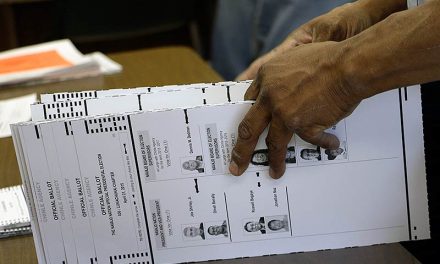
50 Years Ago | Alcohol sales near rez boundary stir debate
There have been a number of surveys over the years about what was worst problem facing the Navajo people and the conclusion was always alcohol abuse. Not only has it resulted in deaths because of automobile accidents, but it has affected the ability of hundreds of members of the tribe to live a fruitful life.
The issue has come up again this week as Navajo Tribal Chairman Peter MacDonald was asked to send a letter to the New Mexico office that approves liquor licenses.
The request came from one or more of the Tribal Council committees, in response to a request being made to the state for a change in the ownership of a liquor store in McKinley County near the reservation boundary.
Over the past five years, starting with the question of allowing a liquor store to operate just west of Yah-Ta-Hay on State Highway 264, the tribal government has opposed each and every request dealing with liquor stores located near the reservation in San Juan and McKinley counties.
And in each case, the department that deals with liquor licenses ignored the tribal position and approved the request. But the Navajos weren’t alone in this matter since the county commissions also went on record as opposing these requests as well.
State liquor officials each time said they had no choice since, under New Mexico law, the state could only reject a request if there was a good reason to do so. Just saying the store would increase the problem of alcohol abuse in the counties and on the reservation would not be enough.
When I pointed out to MacDonald it was a waste of time objecting to liquor store transfers of change of ownership, he said it was part of the approach the tribe took to solving the problem of alcohol abuse.
“It’s true that our objections are ignored by the state, but it sends some a message that liquor sales near the reservation are causing the loss of lives of many of our people and someone should be held responsible,” he said.
In 1972, the problem was made worse by the fact that State Highway 264 and U.S. Highway 666 were two lane and especially dangerous to travel at night because of drunk drivers traveling home from Gallup and Farmington.
The seriousness of this problem was made clear from the number of letters to the editor the Navajo Times received after publishing an article about alcohol abuse or the sale of liquor on the reservation.
Chet MacRorie, who was managing editor of the paper in the early 70s, said there were about a dozen Navajos who were so upset at the tribe for not doing anything about the problem of alcohol abuse that they would use any news for the chance to make their positions known.
Over the last 50 years, I must have written hundreds of stories on the subject and I had no idea what could be done to reduce the hardship reservation residents felt by the current prohibition.
Every couple of years, someone would argue that the tribal prohibition was the cause for most of the problem, arguing that if liquor sales on the reservation were allowed, it would reduce the number of fatal accidents on roads leading to and from the reservation.
Both Phillip Meek and Roland Dart, who were police chiefs on the reservation during most of the 70s, were in favor of legalization if the tribal government could pass very restrictive laws.
They felt strongly that if there were package liquor stores on the reservation, there would be no need for people to go to border communities and that would drastically reduce the number of drunk drivers on roads leading to the reservation.
And to make sure that liquor laws were followed, the government should do the same as other tribes have done when they approved liquor sales on their reservations – have all liquor stores run by the tribe.
I once asked MacDonald about this and he shook his head, saying it would never be approved.
“Every Navajo family has had a family member or a friend killed by a drunken driver,” he said. “Any Council member who voted for legalization would never be re-elected.”
And while liquor sales were prohibited on the reservation, hundreds if not thousands of Navajos made a living as bootleggers. Every community on the reservation had at least one bootlegger and the bigger ones probably had several.
And it appears that they could operate somewhat openly because when we checked the annual arrest reports put out by the Navajo Police Department, the number of arrests for bootlegging was below 100 during the 70s.
I was also told by one Council member that the biggest bootlegger in Chinle operated from his home, which was located within throwing distance of the Chinle Police Department.
So, if there was a solution out there, it appeared that the tribal government would have to think outside the box and a couple of years later I interviewed Larry Ruzow, who had his own idea of how the tribe could control the sale of liquor off the reservation in San Juan and McKinley counties.
Ruzow was one of the attorneys who worked with George Vlassis, the general counsel for the tribe during MacDonald’s first three terms in office.
There had been a couple of federal court decisions that indicated tribal governments could have some authority in Indian Country, which could include lands off the reservation.
The laws considered any off-reservation area totally surrounded by reservation lands to be Indian Country and while it didn’t have the authority to govern these communities, the tribe would have some rights to deal with laws in those areas that would negatively affect the lives of reservation residents.
Since Gallup and Farmington were surrounded by reservation lands, he argued that the tribe had the right, for example, to reject liquor store transfers on grounds that these establishments created severe danger to Navajos on the reservation.
While he thought the Navajo Tribe probably had a legal right to having this designation imposed in San Juan and McKinley counties, he thought it would lead to an uphill battle to get federal courts to approve it.
And if it did, it would probably create a demand from non-Indians in those areas to be given the right to vote in tribal elections, which would only create more court battles.








 Highway 264,
Highway 264, I-40, WB @ Winslow
I-40, WB @ Winslow